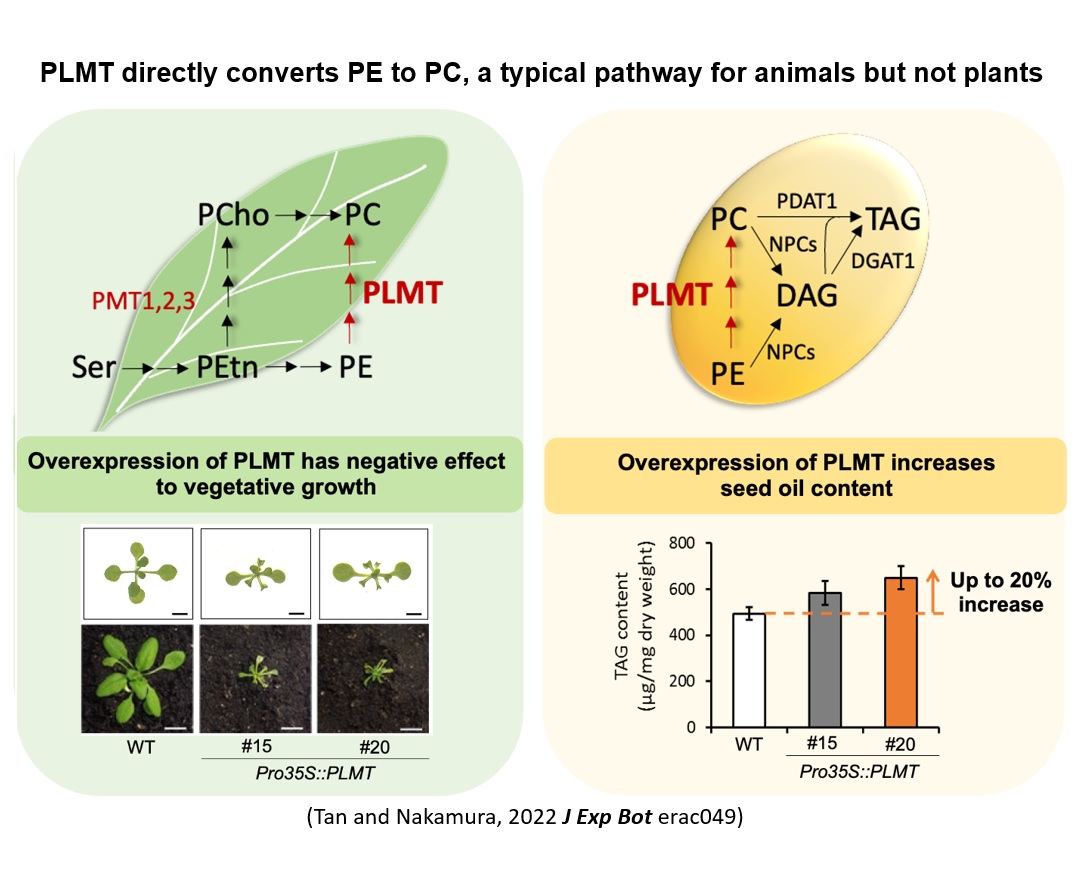[Yuki Nakamura] A new metabolic pathway for seed oil biosynthesis in Arabidopsis
POST:Phospholipids are important constituents of cellular membranes but also precursors for seed oil (TAG) biosynthesis in plants. While the metabolic pathway to convert the most abundant phospholipid phosphatidylcholine (PC) to TAG is well-established, how the second most abundant phospholipid phosphatidylethanolmine (PE) is converted to TAG remained unknown. Thus, finding a metabolic pathway for this conversion has been considered important in seed oil engineering.
The research team led by Dr. Yuki Nakamura found that plant seeds use a new pathway similar to that in animals for oil production and a key enzyme PLMT is responsible for the process. Overexpression of PLMT in planta increased TAG content in seeds while affecting the vegetative growth of the plants, suggesting that this pathway is favorable for seed oil biosynthesis but not for vegetative growth. These findings may contribute to the understanding of the metabolic map of seed oil biosynthesis and also for the development of a new strategy to engineer seed oil contents in different plant species. The work has been published in a British research journal Journal of Experimental Botany
